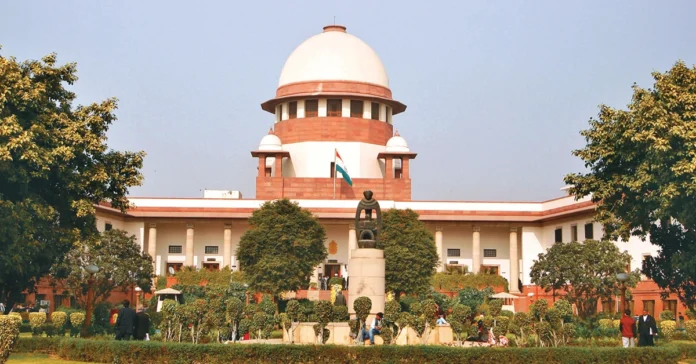The Supreme Court on Friday refused to entertain a petition that sought the establishment of an autonomous body to regulate the content available on over-the-top (OTT) and other platforms in India.
The Bench of Chief Justice of India DY Chandrachud, Justice JB Pardiwala, and Justice Manoj Misra dismissed the PIL on the grounds that this was a purely policy matter, which required consultation and dialogue between various stakeholders.
The PIL sought directions to the Centre to constitute an autonomous body/board, namely the Central Board for Regulation and Monitoring of Online Video Contents (CBRMOV), to monitor, filter and regulate the content available on OTT and other platforms.
The Bench said regulating the internet and the OTT platforms did not come under the jurisdiction of this Court under Article 32, adding that after hearing PILs of this nature, it was left with little time to read genuine PILs.
Advocate Shashank Shekhar Jha, appearing in person, submittedthat he came to court earlier in 2022 also, after which the IT Rules came into existence.
He said in the case of films, there was an established setup, wherein the moviemakers sought permission to publish a film.
On the other hand, there was this setup for OTT, where contents came on their own, without any regulation. In 2022, this Court disposed of other matters, stating that if the petitioners had any difficulty, they could re-approach the Court.
The petitioner-in-person further contended that last month, two movies were released, one in theatre and one on OTT. The film to be released in theatre has not been released till date; however, the OTT one got released. Later, the Ministry had to interfere. The right to equality should be maintained, he added.
The petitioner then sought liberty to approach the concerned Ministry. However, the Court refused his prayer and dismissed the PIL.
Filed by Advocates Shashank Shekhar Jha and Apurva Arhatia, the PIL called for a body to oversee the content on OTT platforms, arguing that self-regulation was insufficient and often not adhered to.
The petitioners mentioned the Netflix series ‘IC 814: The Kandahar Hijack’. It said the series, claimed to be based on real-life events, allegedly attempted to rewrite history and downplayed the severity of terrorism, while subtly glorifying the actions of the hijackers.
It vilified the Hindu community and promoted a harmful agenda, noted the PIL.
It said while the Central Board of Film Certification (CBFC) regulated films under the Cinematograph Act, there was no similar statutory body to monitor the OTT content. The OTT platforms were bound only by self-regulation, which has proven ineffective, leading to the unchecked release of controversial content.
The unregulated content on OTT platforms infringed upon fundamental rights, including equality (Article 14), freedom of expression (Article 19), and the right to life (Article 21). The PIL further mentioned Article 47, which mandated the state to improve public health and restrict harmful substances.
Speaking about the existing IT Rules 2021, introduced to self-regulate OTT platforms, the PIL claimed that they have been ineffective in controlling the content accessible to the public.
Over 40 OTT and video streaming platforms in India offering paid, ad-supported, and free content were said to abuse the right to free expression by releasing unmoderated material that could have negative societal impacts, it added.


